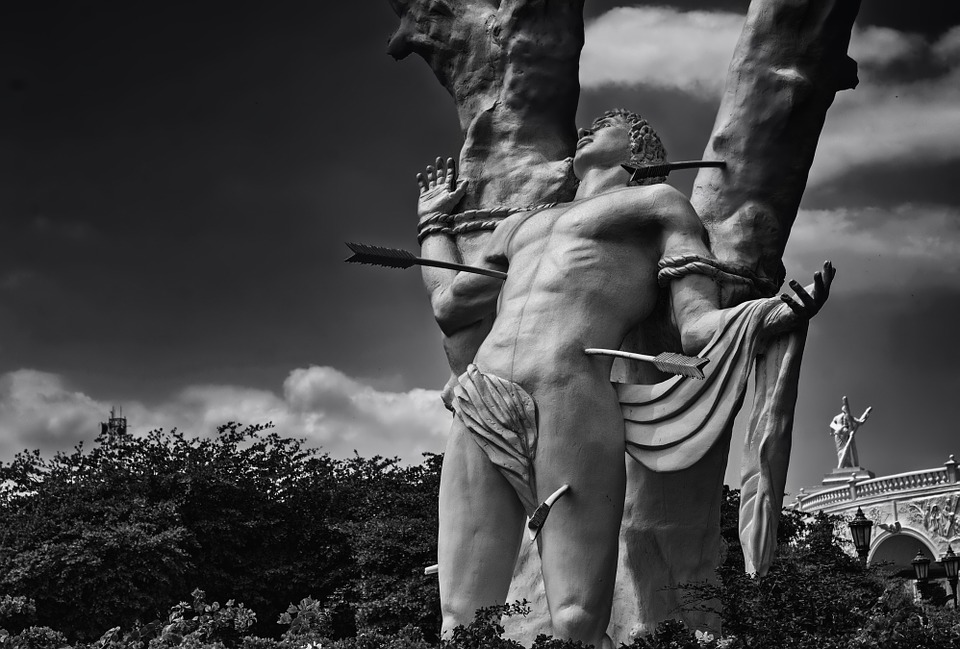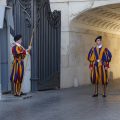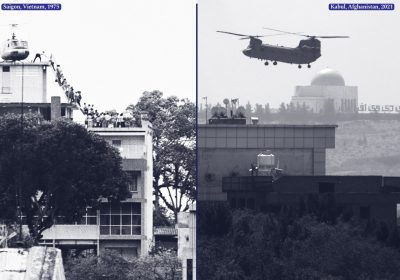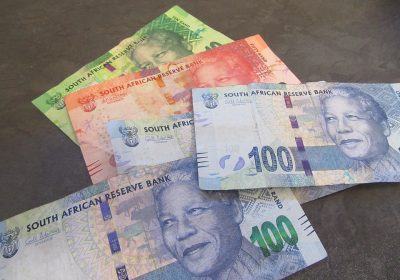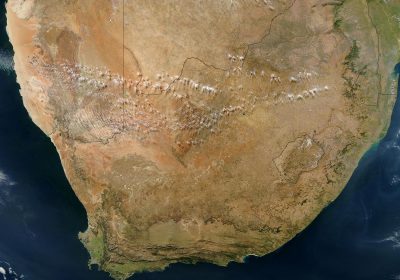De Faakto Intelligence Research Observatory
Deversor Intelligentia Analyticum
Welcome to Deversor Intelligentia Analyticum, a space where De Faakto publishes intelligence notes and observations from analytic professionals in the intelligence community. Deversor Intelligentia Analyticum provides an opportunity for intelligence writers to speak truth to power on important topics. The observations and intelligence notes of Deversor Intelligentia Analyticum are raw, unedited perspectives from the independent analyst. Deversor Intelligentia Analyticum articles are solely the research and analysis of the individual author and do not necessarily reflect the opinion of De Faakto Intelligence Research Observatory. Deversor Intelligentia Analyticum supports analysis from those who choose to write under a pseudonym for operational security reasons. Please enjoy Deversor Intelligentia Analyticum.
Author & Background
This article is written by a former United States Army Warrant Officer with extensive operational experience in Latin America. He now works in the private sector.
Transitional Government in Venezuela-Notes & Observations from an Operator
There is zero opportunity for democratic change in Venezuela in spite of the fact that most Venezuelans want the revolutionary government of Nicholas Maduro to step down. The social, economic and political conditions in Venezuela deny any hope for transparent and fair democratic transition or elections to achieve a regime change in Venezuela.
While the political situation in Venezuela is still extremely blurry and fluid, opposition leader and President of the National Assembly Juan Guaido, has taken to the streets to ask the people and Venezuelan Armed Forces for change and freedom in Venezuela. The risks involved are tremendous, considering that this act by Juan Guaido, appears not to be a well-coordinated effort. Some units within the Armed Forces staged in La Carlota Air Base are backing Guaido and his supporters to put an end to Maduro’s dictatorship. They have ample regional and international political backing as clearly expressed by the Lima Group, the United States and the European Union.
This appears to be the culmination of what has been, from the beginning, Guaidó’s strategy: a diplomatic, psychological and political operation aimed at the security forces of the Maduro regime to change sides in the face of this unsustainable situation. Guaido in return is promising immunity to those who cross the line for democracy and freedom.
Juan Guaido’s hope is for Maduro and the Cubans to leave, since they have lost popular support and know their revolution has failed. The military left behind will have to swear an oath of allegiance to Juan Guaido.
The United States of America
The White House continues to support Juan Guaido in hopes the uprising of the military will remove Maduro from power.
The U.S. has played a dangerous game of false hope and promises to entice the population to rally behind opposition leader Juan Guaido. Promises of economic recovery for Venezuelans, seems to be a disconnect within the U.S. administration. Different factions are pushing their own agenda publicly with no clear policy coming from Washington. Senior US officials have repeatedly stated that “all options are on the table.” The Trump administration has taken little concrete action beyond economic sanctions.
Cuba
When speaking of Venezuela, Cuba is a central piece. Cuba plays a critical part in the internal and external policies of the Maduro regime. The close alliance between Havana and Caracas has survived the death of Chávez in 2013 and the rise to power of Cuban, Miguel Díaz-Canel as a substitute for Raúl Castro. Cuba will not allow this puppet regime to surrender its position in Miraflores or lose control of Venezuela´s wealth.
Currently, Nicolás Maduro continues to find himself in the middle of a serious political crisis unleashed in January, 2019. Nicolás Maduro was sworn in for a second term as a result of votes considered fraudulent by the opposition and fifty countries, including the United States and the European Union.
One thing is for sure, there is no way that the Maduro government would survive free and transparent democratic elections. The decision has been made not to permit free and transparent elections by Cuba. Cuba is looking for a “transitional government” in its negotiations with the opposition representatives (MUD) in the Dominican Republic. The strategy is to find a manageable candidate that will cooperate with the revolution´s survival and allow them to retain economic and political “participation” in the country. This is demonstrated revolutionary doctrine observed in Nicaragua when the Sandinistas required Violeta Chamorro to appoint members of the Sandinista government to her cabinet. They played a major role in getting her successor, Arnoldo Alaman; a corrupt politician elected to discredit democracy in Nicaragua. Alaman´s successor Enrique Bolaños was democratically elected and governed. Abuses and corruption by Aleman and the constant challenges brought by FSLN against Bolaños lead to the Sandinista leader Ortega getting reelected in 2006. Some analysts call the 12 years following Chamorro´s election the “democratization” of Nicaragua, however they overlook Cuba´s strategy to maintain political control. Today Daniel Ortega remains the head of state. This was a brilliant manipulation of “democracy”, authored by Cuba to discredit democracy and insure the survival of a revolutionary government in Central America.
Nicaragua could not finance Cuba or spread the revolution in Latin America, so they continued their strategy and supported Hugo Chavez in Venezuela. Now this political populist phenomenon is dead and the revolution has lost almost all of its popular support, as it did in Nicaragua. It is time for history to repeat itself and play the “democratic game”. While in negotiating Cuba’s political survival it also retains control of Venezuela. Now the revolution is dictating its conditions for elections and dictating which candidates can participate. Fool me once shame on me; fool me twice shame on you.
There is justifiable confusion within the democratic majority in Venezuela as to whether or not they should participate in the government announced presidential elections. Under normal conditions democrats have a civic duty and moral responsibility to vote in every democratic election. The confusion on the part of the electorate is that there is no imprint of democracy in the proposed presidential elections. This sense of doubt and confusion is due to the fact that these planned elections do not qualify as a democratic. There are several factors that disqualify these elections as a democratic action.
- The elections were conceived and planned by the illegitimate and unconstitutional “Constitutional National Assembly” (ANC)
- The legitimate and constitutional National Assembly has still not appointed a new National Electorate Council (CNE) to properly plan or carry out a transparent electoral process. There is a documented history of electoral fraud by the present CNE. A new CNE appointment would be imperative for free, fair and transparent elections.
- The government has arbitrarily decided which political parties and candidates are allowed to step into the electoral ring. This is political rigging and there is growing evidence that those allowed to run in the presidential elections have agreed to non-democratic concessions. Both primary “opposition” candidates have questionable financial dealings with the revolutionary government and are already under allegations of corruption. (Just like Alaman in Nicaragua.)
- The international democratic community has unanimously announced that they would not recognize election results under the proposed conditions that the government is insisting.
It is important to keep in mind two principles of revolutionary doctrine:
- The revolutionary government of Venezuela will not abandon power regardless of election results. There is no space for political plurality or dissent in revolutionary doctrine.
- Revolutionary doctrine and governing is not democratic in nature and only uses democratic language to confuse and camouflage its dictatorial agenda. To call for elections is an assault on democratic principles and its motive is to convince the Venezuelan electorate to abandon democracy as a form of political change.
In that this is not a democratic action with the intention of hearing the people´s voice. It is the responsibility of every freedom loving democrat to reject and abstain from participation in this illegitimate election being carried out by a non-democratic regime. It is unconstitutional and construed for the purpose of discrediting the value of democracy in Venezuela. The only responsible action for democrats to take in the upcoming elections is abstention. In the continued struggle for freedom and democracy we must not recognize the illegitimate ANC or the sitting government as honest brokers of democracy or peace. Furthermore it is the responsibility of the National Assembly to appoint a new, balanced and objective CNE; which is within their power and constitutional remit to do. Even if the new CNE had to operate in exile as is the case for the newly appointed Supreme Court (TSJ), it would provide the legitimate instrument for mounting democratic elections.
The international democratic community has announced that it will not recognize the results of this election. If the international community of democratic states wants to reestablish democracy in Venezuela an intervention must be staged, and the criminal cartel that sits in Miraflores must be ejected. With a corrupted military and vast Transnational Crime interests in Venezuela, there is a persistent threat to democracy even with a legitimate regime change. Venezuela and its people need to be rescued and would gladly accept assistance from its neighbors. Venezuelans don´t need the international community to tell them there is a social-economic-political crisis in their homeland. They don´t need the international community to say they do not accept the Maduro regime. They need the international community to act against this illegitimate regime and help eradicate the narco-terrorist nexus that holds Venezuela hostage. The international community must also recognize the intervention (invasion) of Cuba in Venezuela. Cuba must be held responsible for its role and leadership in destroying democracy in Venezuela and its sustained attack on democracy in the region. It´s time for ACTION.

